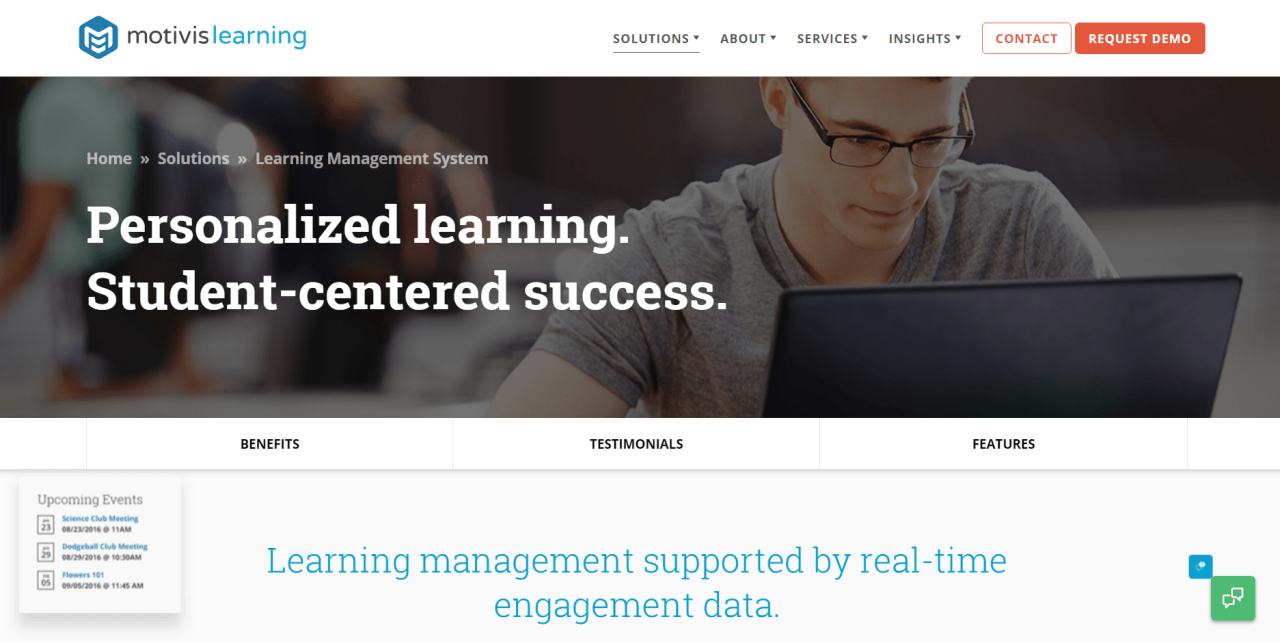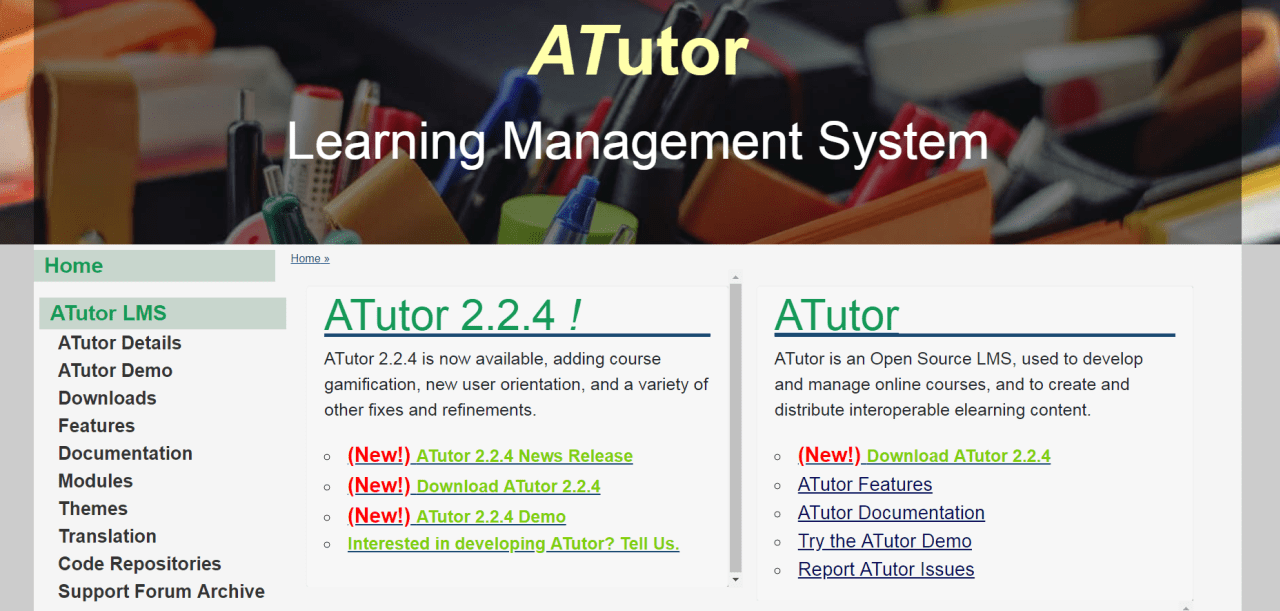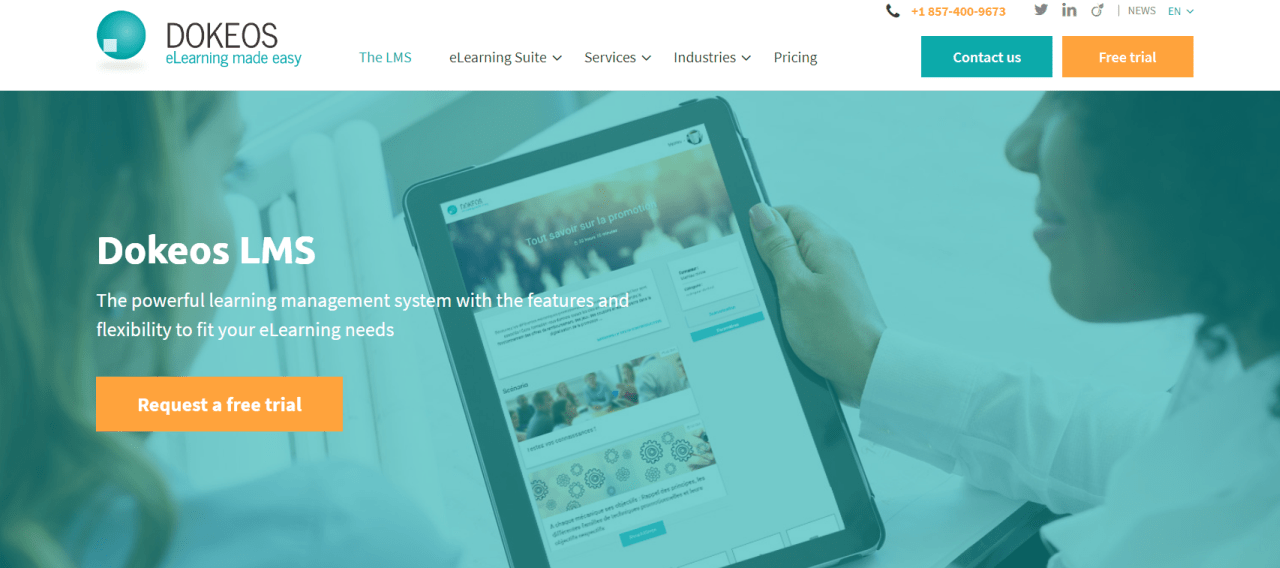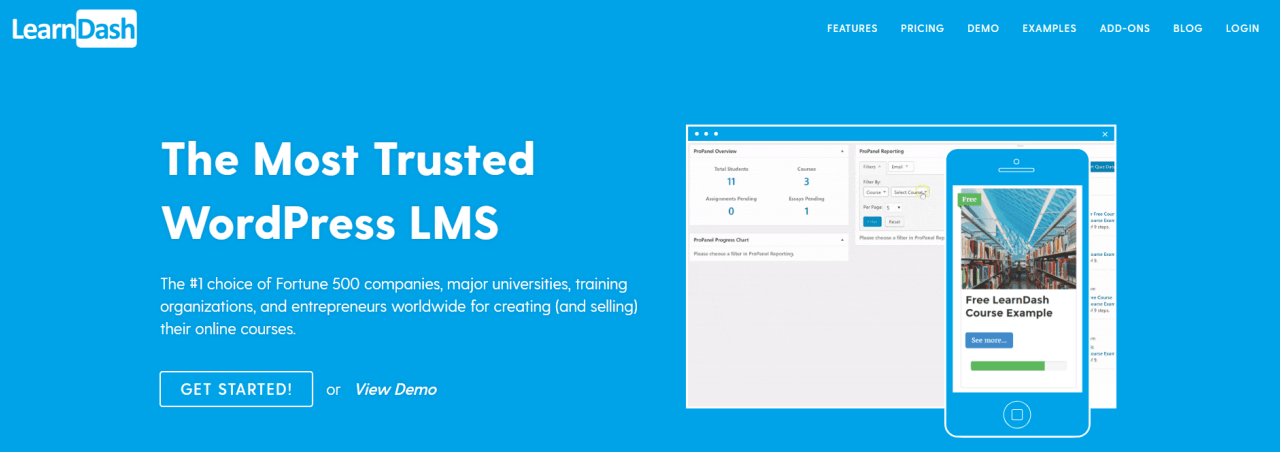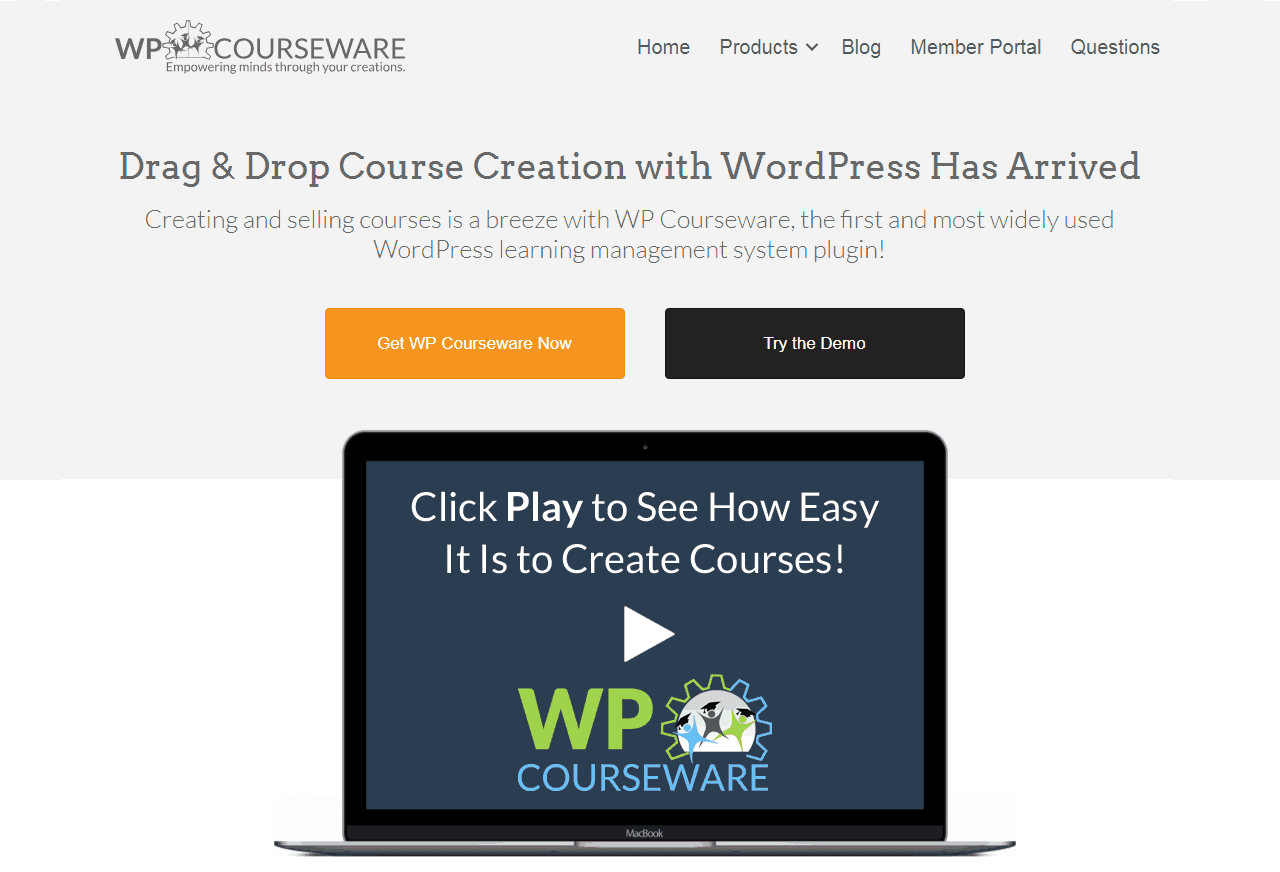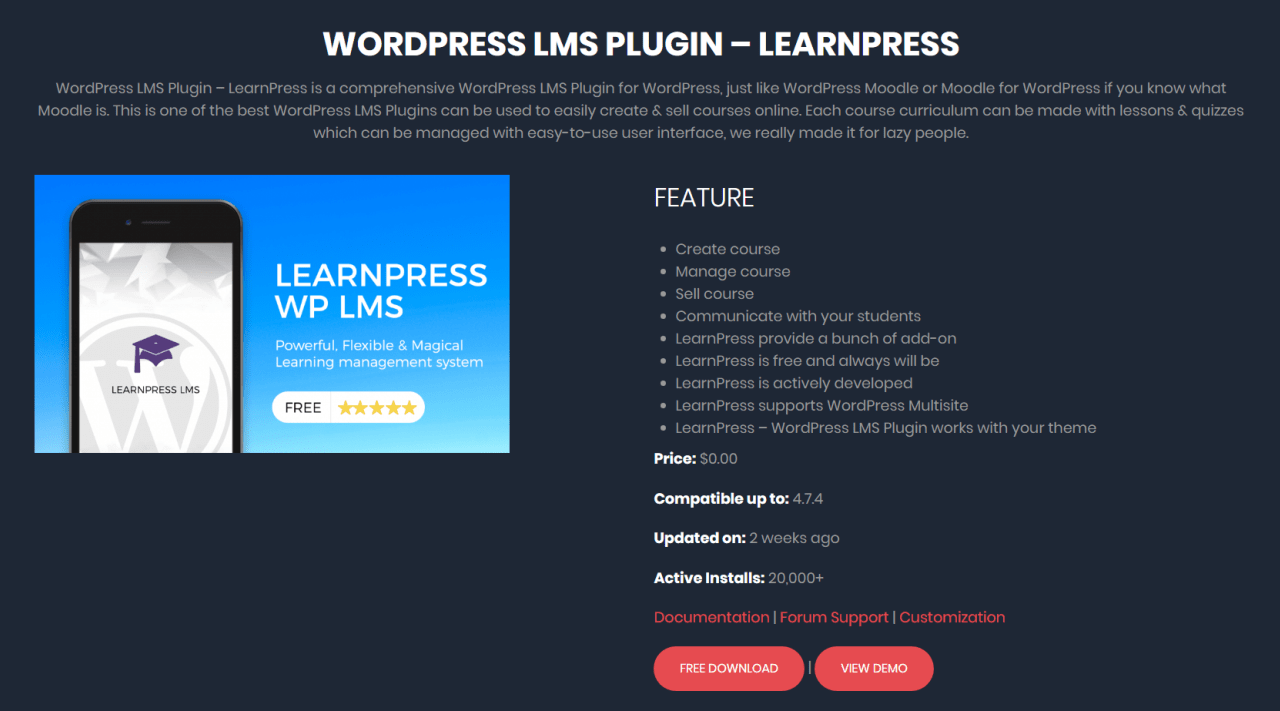
Educators and administrators in higher education learning space rely on Learning Management Systems (LMS) for developing and distributing course content and tracking progress. In recent years, some LMS solutions have emerged with features specific to higher education.
However, finding the right solution for your institution can be a difficult task. I’m personally committed to using open source software and especially WordPress when it comes to developing powerful and flexible Learning Management Systems for higher education establishments. But what surprised me when I began writing this article was the number of proprietary LMS systems there are on the market today. I wrote an additional article a few months ago about some of leading SaaS LMS platforms which might also be of interest.
In this article I will run the rule over some of the best LMS solution – premium offerings, open-source solutions, and WordPress plugins – to help you make an informed decision.
Before we begin, let’s quickly take a look at what Learning Management Systems are and what features you should look for in the context of higher education.
What Are Learning Management Systems?
Learning management systems enable instructors to share course content, give homework and assignments, post grades, and collaborate with the class in a social environment. Students are able to use LMS solutions to access course material, important announcements, turn in their work, and view grades.

“A learning management system is a software application for the administration, documentation, tracking, reporting, and delivery of educational courses or training programs.” Ryann K. Ellis, Field Guide to Learning Management
The key features LMS solutions geared towards the higher education learning space vary from one tool to the next. That said, most LMS solutions offer the following core functions:
● Enable instructors to develop an educational workflow.
● Create, administer, and grade homework, assignments, projects, quizzes, and tests.
● Collaborate with students through a centralized platform (social, forum, or chat).
● Track student progress.
By now, we have a good idea of what LMS solutions are and what features are essential for managing higher education learning. Next, let’s step through some of the best Learning Management Systems for higher education.
14 Best Learning Management Systems in Higher Education
LMS solutions can broadly be categorized as either (1) premium tools, (2) free, open-source software, or (3) WordPress plugins. Let’s take a look at the top contenders in each category.
Premium LMS Solutions:
#1: Blackboard
Blackboard is an all-round LMS solution that enables institutions to create an engaging, functional, and collaborative learning environment. It delivers an effective learning experience through online, blended, and mobile learning.
Key Features:
● Create, deliver, and manage courses from a central platform.
● Plagiarism prevention through SafeAssign.
● Integrates with Dropbox and OneDrive.
#2: Brightspace
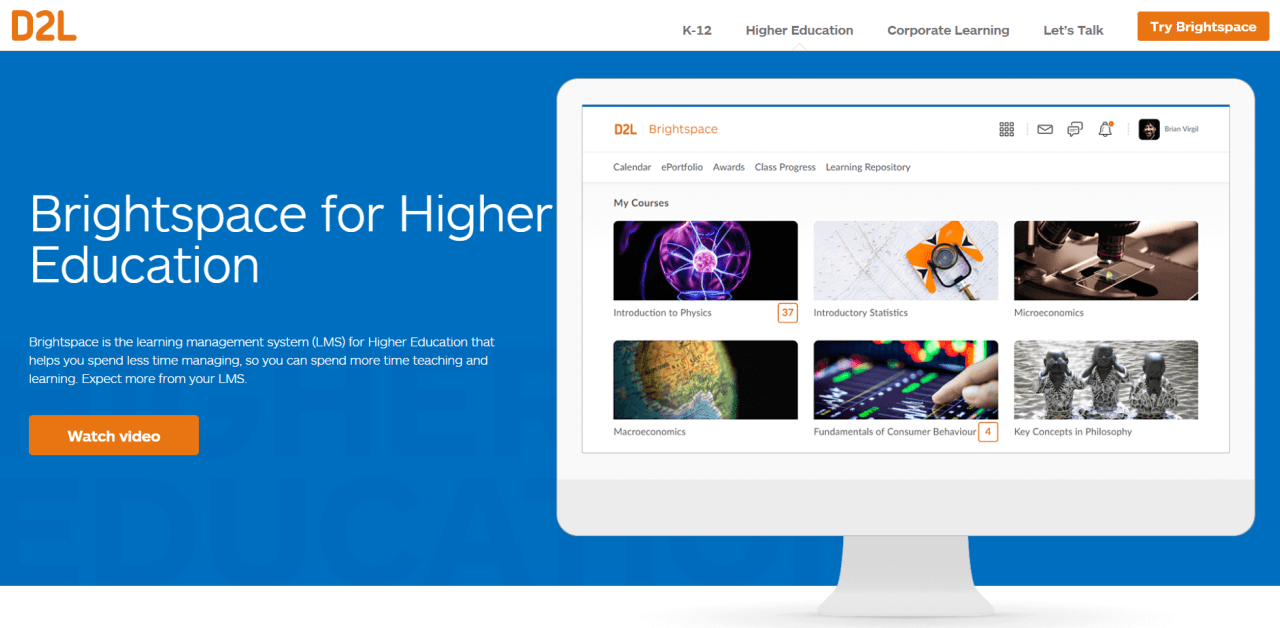
D2L’s Brightspace is a LMS geared towards students, faculty, staff, and administration that makes it easy to manage and monitor all sorts of institutional activities. The tool offers powerful tools that are designed to support personalized learning experiences.
Key Features:
● Built-in analytics to get insight into performance for individual departments, courses, or students.
● Instructors are able to create video-based course content and multimedia presentations for online courses.
● Educators are able to deliver mobile accessible content.
#3: Canvas

Canvas is a premium, cloud-hosted LMS that’s designed to help educators save time and effort while delivering engaging higher learning experiences. For instance, its Speedgrader Annotations feature makes it easy to preview student submissions and provide feedback.
Key Features:
● Graphic analytics engine allows instructors to turn learner data into meaningful insights.
● Offers an integrated media recorder.
● Lets you set up automated tasks to streamline course management.
#4:Motivis
The standout feature on offer with the Motivis LMS is that it provides a scalable, personalized learning experience for every student. This flexible platform enables course instructors to choose the criteria that best fits their learning model.
Key Features:
● Responsive assessments (quizzes and tests) can be accessed on desktop computers, tablets, and smartphones.
● Supports analytical and holistic rubrics.
● Offers group discussion boards to increase engagement.
#5: itslearning
itslearning is built to speed through common educational workflows such as creating assignments, providing feedback, and grading various assessments. The cloud-based platform enables educators to store and share curriculum resources and course material in an easy-to-access online repository.
Key Features:
● Instructors are able to connect courses with learning objectives.
● Enables students and lecturers to communicate and collaborate in an online environment.
● API and LTI connectivity makes it easy to integrate with countless software and content providers.
Open-Source LMS Solutions:
#6: Moodle
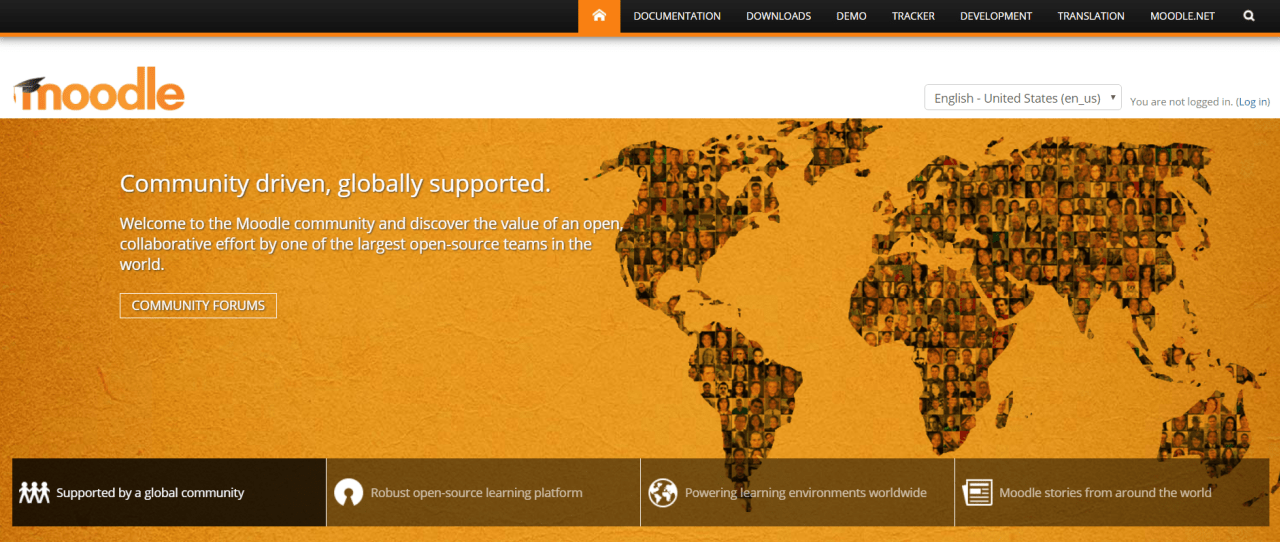
Moodle is one of the most popular, open-source LMS solutions used all over the world. It enables institutions to create effective online learning experiences in a collaborative and private environment.
Key Features:
● Offers an intuitive, easy-to-use interface.
● Collaborative tools include forums, wikis, glossaries, and much more.
● Users are able to receive automatic notifications on new assignments, upcoming deadlines, forum posts, and private messages.
#7: ATutor
ATutor is an open-source, web-based LMS that helps educators develop and deliver online courses. This simple yet powerful platform packs a number of features that make it easy to create content, share course material, manage assessments, and much more.
Key Features:
● Instructors are able to create work-groups to provide an assignment submissions area or assign tests to specific students.
● Offers the ability to export content as IMS/SCORM conformant content packages.
● Creates a social learning environment for students.
#8: Sakai
Sakai is a powerful and easy to use LMS that’s used all over the world. It facilitates all types of learning environments including online courses, individual and group study, research activities, and collaborative projects.
Key Features:
● The platform’s core feature lists includes a grade book that’s used to calculate, store, and distribute grade information to students.
● Students are able to participate in graded discussions.
● Lesson builder lets educators organize and manage content (resources, tests, assignments, and media).
● Offers functionality to share course syllabus and set up group email lists.
#9: Dokeos
The Dokeos LMS offers a complete e-learning suite that offers authoring, management, evaluation, and gamification features. Instructors can begin by designing customized courses from scratch or import existing course material on to the platform.
Key Features:
● Instructors are able to collaborate with colleagues on the same project.
● Offers the ability to develop applied games.
● Comes with a web portal for sharing course videos.
WordPress LMS Plugins:
#10: LearnDash
LearnDash is a WordPress-based LMS solution that higher education institutions can use to deliver and track online coursework. It features an intelligent course builder, advanced quizzing, and lesson timers functionality to deliver immersive learning experiences.
Key Features:
● Instructors are able to set flexible course,lesson, and quiz-based prerequisites.
● Offers private and public dynamic, course-specific forums to encourage discussions.
● Built-in gamification features to create an engaging learning experience.
#11: LifterLMS
LifterLMS is packaged as a WordPress LMS plugin that offers all the essential features for creating and managing course content in higher education. The tool helps instructors organize and structure engaging online courses.
Key Features:
● Instructors are able to offer downloadable course resources such as e-books, worksheets, PDFs, and audio files.
● Platform lets you assign multiple instructors to a single course.
● Multiple discussion areas such as lesson comments, forums, and coaching areas.
#12: Sensei

Sensei is a premium WordPress plugin that enables online educators to create courses, develop lessons, and add quizzes from within their WordPress website. In addition to this, instructors are able to charge for course content.
Key Features:
● Platform offers built-in reporting facilities to give you an overview of students’ grades, course content, and course registrations.
● Offers automatic quiz grading functionality to streamline the online teaching workflow.
● Instructors are able to create all kinds of quizzes including multiple choice, true/false, gap fill, single line, multi line, and file upload.
#13: WP Courseware
WP Courseware is a feature-rich WordPress LMS solution that’s ideal for higher education institutions. The platform offers a number of powerful features that are designed to streamline the educational workflows.
Key Features:
● Instructors are able to protect courses by restricting them to registered, enrolled, or logged in students only.
● Powerful quizzing features (timers, retake limits, reporting, and surveys) creates an engaging learning experience.
● Instructors can view and export detailed quiz results and individual student progress reports.
● Lets instructors create customizable email templates for courses, final grades, and feedback.
#14: LearnPress
LearnPress is like Moodle for WordPress. Higher education institutions are able to use this free WordPress LMS plugin to create, manage, and share online courses. The best part is that you can install as many add-ons as you’d like on an as-need basis to avoid unnecessary site bloat.
Key Features:
● LearnPress comes with a number of free and premium add-ons to gain access to advanced functionality such as creating assignments, enabling co-instructors, integrating payment methods, and much more.
● Integrates with bbPress and BuddyPress to facilitate course collaboration.
● Gradebook add-on lets instructors view and publish students’ results and export reports as CSV files.
Conclusion
Finding the right learning management system for your higher education institution can be a daunting task. The sheer number of features on offer is often overwhelming which is why it’s a good idea to jot down the features you’re looking for.
● If you’re looking for a premium LMS to support your higher education institution, Blackboard is definitely worth trying out. It offers all the essential features you need and many more.
● However, if you’d prefer to go with an open-source platform, we’d recommend checking out Sakai. The feature-rich platform comes with an intuitive user interface that’s easy for both instructors and students to use.
● And if you’re looking for a WordPress solution, LearnDash or LifterLMS are the way to go. LearnDash is used by major universities (including the University of Florida, University of Michigan, and University of Washington).
What are some of the features you look for in a Learning Management System for higher education learning? We’d love to hear from you so let us know in the comments section below!



